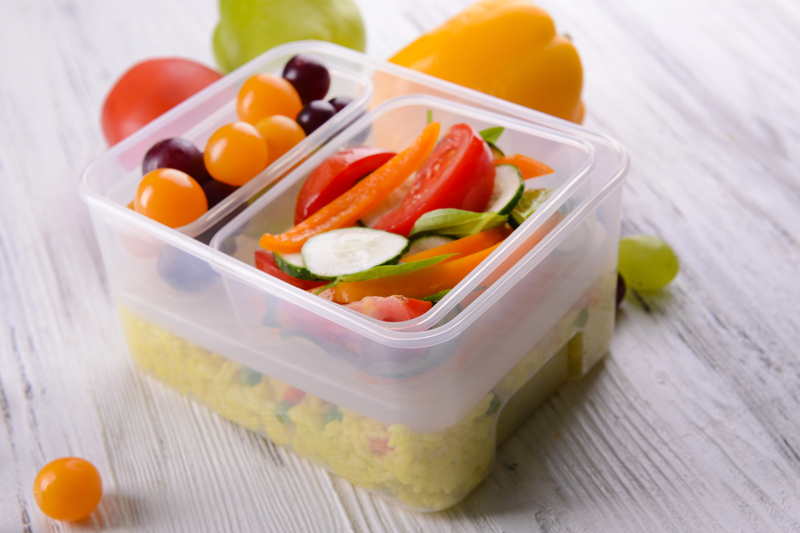How to Declutter Bulky Items and Still Save Money: A Comprehensive Guide
Are you struggling to free up space in your home, but worried about wasting money while getting rid of big, cumbersome possessions? If so, you're not alone. Many people face the challenge of decluttering bulky items such as furniture, appliances, mattresses, oversized decor, recreational gear, or electronics. The key is to declutter efficiently while maximizing your savings or even earning some extra cash. This step-by-step article explores smart, money-saving strategies to help you clear out large items from your home without breaking the bank.

Understanding the Challenge of Bulky Item Decluttering
Bulky items often occupy the most valuable real estate in your living spaces. Whether you live in a small apartment or a spacious house, oversized belongings can quickly accumulate, resulting in clutter, stress, and even reduced home value. These possessions can be expensive to dispose of, and improper handling may even incur additional costs.
Why decluttering bulky items can feel overwhelming:
- High-cost of removal or disposal services
- Complex logistics--moving, loading, transport
- Sentimental attachment to large objects
- Potential for wasted value if discarded incorrectly
- Concerns about environmental impact
By approaching the process strategically, you can declutter with minimal expense and maximum benefit, turning a dreaded task into a rewarding experience.
Step 1: Assess and Plan for Every Bulky Item
Take Inventory of Your Bulky Possessions
Start by listing all large, seldom-used, or obsolete items throughout your home. Typical examples include: couches, beds, large wardrobes, dining tables, workout equipment, old televisions, deep freezers, or garden machinery. Don't forget storage rooms, garages, and outdoor sheds!
Evaluate the Real Need and Value
For each item, ask yourself:
- Do I actually use or love this?
- Is it functional, safe, and in good condition?
- Could this serve a better purpose for someone else?
If the answer is "no" to any of these, it's time to let go and reclaim your space.
Step 2: Research Smart Disposal and Money-Saving Options
1. Resell for Extra Cash
Selling unwanted bulky items is one of the best ways to recoup some value. With today's technology, your customer base is right at your fingertips. Consider:
- Online marketplaces: Facebook Marketplace, Craigslist, OfferUp, eBay (for certain large collectibles), and Nextdoor
- Consignment stores: Furniture shops or secondhand appliance dealers
- Garage sales or community yard sales: A great way to reach local buyers and move multiple items at once
Tip: Take clear photos, write honest descriptions, and price items competitively for quick sales. This not only helps you declutter but puts cash directly back into your pocket!
2. Donate for a Good Cause--and Land Tax Deductions!
If selling isn't practical or time is limited, consider donating:
- Charities like Goodwill, Habitat for Humanity, The Salvation Army, and local shelters
- Schools, theaters, churches, or community centers (these institutions often need furniture and appliances)
- Specialty recycling programs for things like mattresses and electronics
Many organizations offer free pickup services for significant items. Keep your donation receipt--you may be eligible for a tax deduction, which means more money saved.
3. Upcycle or Repurpose Bulky Items
Get creative and give old items new life! For example:
- Turn a worn sofa into a porch swing or outdoor seating
- Convert an old dresser into a stylish TV stand
- Repurpose wood or metal materials into garden planters or shelving
Upcycling allows you to avoid disposal fees and save money on new purchases for your home or garden.
4. Rent or Borrow Instead of Hoarding
For items rarely used--like extra chairs, folding tables, or specialized equipment--it may be better to rent, borrow, or use community sharing platforms in the future rather than keep them at home.
- Tool libraries
- Community rental groups
- Neighbor swaps
Letting go of what you can easily replace for a day when needed is a huge space-saver--and a money-saver!
5. Tactfully Use Junk Removal Services
Some oversized items (like soaked mattresses, broken appliances, or non-sellable furniture) will need to be disposed of professionally. To save money:
- Get multiple quotes from local junk removal companies
- Schedule your removal during local large trash pickup days
- Team up with neighbors for a group bulk pick-up discount
Step 3: Practical Decluttering Tips for Every Budget
Declutter One Category at a Time
- Tackle one room or item type per weekend to avoid overwhelm
- Prioritize items you use least often
- Set clear deadlines for listing, donating, or disposing
Save on Moving and Transport Costs
- Disassemble furniture to make self-transport easier
- Borrow a friend's truck or rent a van for a few hours instead of paying for full-service moving
- Share moving costs with neighbors working on similar projects
Host a "Take My Stuff" Party
Invite friends, family, or neighbors to "shop" your no-longer-needed big items before you haul them out the door. They might be delighted to take a gently used piece home--saving you money, time, AND effort in the process!
Timing is Everything
- Sell furniture, patio sets, and appliances when demand is high--in spring/summer or back-to-school season for student-heavy towns
- Plan donation drop-offs around tax season to maximize deductions
- Take advantage of community bulk-waste event dates
The best decluttering happens when you work smarter, not harder.
Step 4: Adopt an Ongoing Minimalism Approach
Prevent Clutter Before It Starts
- Think before acquiring: Ask yourself, "Will this fit and serve a long-term purpose?" before buying large items.
- Measure doorways, rooms, and storage spaces beforehand to avoid costly returns or storage fees
- Opt for multi-purpose, foldable, or modular furniture
Schedule Regular Declutter Sessions
- Mark your calendar once or twice a year to review large belongings--especially after life changes like moving, downsizing, or children leaving home.
- Make it a family activity to teach children and teens the value of space and money-saving decluttering habits.
Embrace Digital and Virtual Solutions
- Subscribe to streaming services instead of keeping stacks of DVDs, game consoles, or sound systems that take up space.
- Digitize old media (photos, documents, films) and donate or recycle bulky originals.
- Gift experiences rather than physical presents that might wind up as clutter.
Benefits of Decluttering Bulky Items Without Overspending
- Reclaim valuable living space for your family's enjoyment
- Reduce stress and improve mental clarity
- Spend less on unnecessary storage or maintenance
- Potentially earn money through sales or tax savings
- Help your community and the environment by donating or recycling responsibly
Real Success Story
Jessica, a recent downsizer, shares: "By selling our oversized sofa and donating our old appliances, we not only saved over $500 in disposal fees but also earned $800 from buyers. Our new home feels lighter, and we applaud ourselves for making the process eco-friendly and budget-smart!"

Frequently Asked Questions About Decluttering Bulky Items
How can I save money when disposing of large furniture?
Sell or donate whenever possible instead of hauling to the landfill. Research local organizations offering free pickups, and look for city-sponsored large trash events. Disassemble items to save space and moving costs.
Who picks up bulky donations for free?
Many charities provide free pickup services for sizable, gently used items. Examples include The Salvation Army, Habitat for Humanity ReStore, and local church donation programs. Always call ahead to schedule.
What if I need to get rid of something right away?
If it's urgent, list on "Buy Nothing" social media groups, offer items for free online, or contact local haulers for a rapid quote. For safety, always meet buyers or collectors in public and never leave items unattended outside without confirming pick-up times.
Can I deduct donations of large items from my taxes?
Yes! Generally, charitable donations of furniture and appliances above a certain value qualify for a tax deduction. Make sure to get a receipt and keep photos in case you need to provide documentation. Consult a tax professional for specific advice.
Conclusion: Decluttering Bulky Items the Smart, Budget-Friendly Way
To sum up: With the right approach, decluttering bulky items doesn't have to drain your wallet--it can even boost your finances. Whether you sell, donate, repurpose, or responsibly recycle, every step frees up space, lightens your mental load, and strengthens your bank account. Start with a plan, leverage community resources, and always think long-term for a clutter-free, stress-less lifestyle.
Ready to free up your home and your budget? Begin your bulky item decluttering journey today--and reap the rewards for years to come!